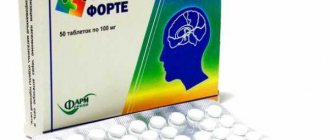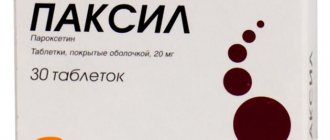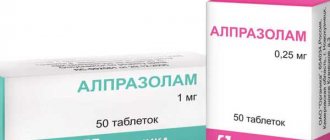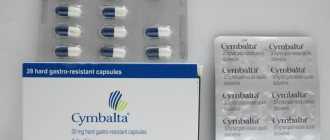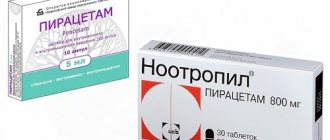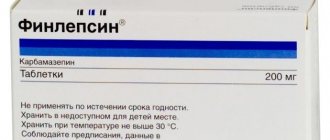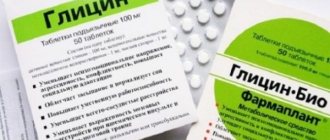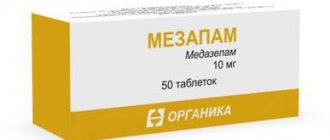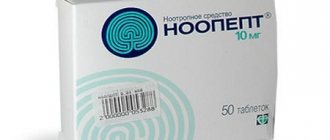Quite a large number of people complain that they constantly suffer from insomnia, as a result of which it is very difficult for them to concentrate on anything. They also regularly experience irritability, mental performance deteriorates, and so on. Experts explain such effects by the fact that the brain lacks nutrients. Therefore, they recommend taking a course of medication such as Glycine Bio. We will consider reviews of the effectiveness of this product at the very end of the article.
Action of the drug
What properties do Glycine Bio tablets have? Pharmaplant is a German pharmaceutical company based in Hamburg. It is she who produces the medicine we are considering.
The manufacturers of this medicine report that glycine is a nonessential amino acid. It has an antioxidant effect and activates metabolic processes that occur in brain tissue.
It should also be noted that glycine is able to regulate the functioning of glutamate receptors, as a result of which a person’s aggressiveness, psycho-emotional tension and conflict are noticeably reduced. In addition, this drug helps improve mood.
According to experts, Glycine Bio eliminates insomnia, vegetative-vascular disorders and disorders in patients who have recently suffered a traumatic brain injury or stroke.
Contraindications, side effects and overdose
Glycine Bio sublingual tablets are contraindicated in two cases:
- If the patient’s body is too sensitive to glycine or related substances.
- When a patient has arterial hypotension.
All drugs have side effects, and Glycine Bio is no exception. However, unlike other medications, the negative consequences of taking sublingual tablets can only be expressed in allergic reactions.
During the time the drug was on the pharmaceutical market, there were no reports of overdose.
On a note. Due to the sedative effect of the drug, driving a vehicle or performing other potentially dangerous activities should be done with caution. A patient taking Glycine Bio may be unable to achieve the necessary concentration and rapid neuromotor reactions.
The drug "Glycine Bio": what is it for?
According to the instructions, the product in question is used for:
- stressful conditions that are provoked by psycho-emotional stress;
- deterioration in performance (mental);
- insomnia and other sleep disorders associated with various forms of encephalopathy, neuroses, alcohol abuse and vegetative dystonia;
- deviant behavior in adolescents;
- functional and organic diseases of the nervous system, which are accompanied by emotional stress and a high level of excitability;
- stroke.
What is it used for?
Glycine is recommended for use in conditions caused by disorders of the central nervous system:
- increased fatigue during mental or physical exertion;
- conditions associated with mental and psycho-emotional stress;
- stressful conditions;
- depression;
- neuroses accompanied by anxiety and irritability;
- sleep disorders;
- symptoms characteristic of so-called vegetative-vascular dystonia;
- deviant (antisocial) behavior in children and adolescents;
- consequences of stroke;
- epilepsy;
- neurological and mental disorders observed after traumatic brain injury;
- perinatal damage to the central nervous system in children of younger age groups;
- encephalopathy of various origins (including alcoholic and drug-induced).
The drug should be used primarily in the presence of diagnosed neurological pathology. In the absence of diseases of the central nervous system, its effectiveness (for example, when taken to improve memory, attention, mental performance) has not been proven.
Instructions for use
For adults and children, this drug is prescribed buccally or sublingually.
For stress, deterioration of memory, performance and deviant behavior, the medication is used in an amount of 100 mg three times a day for one month.
If a person has lesions of the nervous system, accompanied by emotional arousal and excessive excitability, then the medication is given to children in a dose of 50 mg three times a day for two weeks (up to 3 years of age).
With the same diagnosis, a child over three years old is prescribed 100 mg of the drug three times a day for one month.
For sleep disorders, depending on the patient’s age, it is recommended to take 50-100 mg of the drug once (before bedtime).
People who have had a stroke are prescribed 1 g of the drug (during the first 5-6 hours). In the future (1-5 days), the medicine is taken in the same dose once a day, and then - 100-200 mg three times a day for a month.
For a drug addict, tablets are prescribed in an amount of 100 mg three times a day. This therapy should last for 4 weeks.
to a person?
If you doubt that such a remedy is right for you, it is worth pointing out that the drug is available without a prescription and has proven to be safe and non-toxic. However, the advisability of taking it is best determined by a doctor.
Glycine tablets are placed under the tongue, behind the cheek or rubbed to a powder. As for the dosage, it depends on the diagnosis and form of the patient’s disease:
- for diseases of the nervous system, manifested in the form of irritability, aggression, insomnia, increased anxiety and excitability, you must take 1 tablet 2-3 times a day for 2-4 weeks;
- to treat insomnia, 1-2 tablets should be taken before bed;
- in case of frequent stressful situations and strong emotional stress, drink Glycine 1 tablet 2-3 times a day for a course of 2-4 weeks;
- for ischemic stroke, the patient is given up to 10 tablets of the drug in the first 3-6 hours after the stroke, then 10 tablets daily for 5 days, and after that for another month, 1 tablet 3 times a day;
- when treating alcohol addiction, take a tablet 2-3 times a day for 3-4 weeks, and to relieve a drunken state, take 1 tablet, another 20 minutes later, and a third an hour later.
How to take Glycine correctly - before or after meals? This nuance is not of great importance. However, due to the aminoacetic acid content in the drug, it is best to take it 30-40 minutes after eating. This measure will help avoid the development of gastrointestinal pathologies.
Drug interactions
Simultaneous use of the drug in question with antidepressants can reduce the toxic effect of the latter. This medication also worsens the effect of anticonvulsants and antipsychotics.
When Glycine Bio is combined with tranquilizers, sleeping pills and antipsychotics, a person’s psychomotor reactions significantly slow down and his attention deteriorates.
In case of hypotension, the dosage of the drug "Glycine-Bio" should be reduced. In this case, it is necessary to constantly monitor blood pressure indicators. If they are below normal, then treatment should be suspended.
While taking the pills, extreme caution must be exercised when practicing hazardous activities and driving vehicles.
special instructions
Taking Glycine is not a reason to revise your diet for the period of treatment.
Patients who have a tendency to lower blood pressure below normal values should regularly monitor this indicator. If hypotension occurs while taking the drug, its use should be discontinued.
Glycine should not have a negative effect on the functioning of the central nervous system, but caution should still be exercised when driving a vehicle or a potentially dangerous technical device.
Preparations "Glycine Bio" and "Glycine": differences
Pharmacists often advise buying Glycine Bio. What is the reason for this persistence? The fact is that this drug is imported (from a German manufacturer), and therefore its price may be slightly higher than that of a Russian drug.
However, experts note that the difference between these medications lies not only in their manufacturer.
What can you say about the products “Glycine Bio” and “Glycine”? Their differences are insignificant. According to experts, the first drug has a dual effect on the child’s body. It reduces the degree of motor activity of the baby, and also helps improve learning and attention.
Glycine Bio represents a separate subgroup of the class of psychostimulants and nootropic drugs. This is the most popular drug from this group due to its low price and availability in any pharmacies in the country.
The medicine is available in the form of sublingual tablets containing 0.1 g of glycine, an amino acid. Auxiliary ingredients: magnesium stearate, microcrystalline cellulose, povidone. Sold in ten or fifty pieces in blister packs and cardboard packs.
Contraindications and side effects
The main contraindication to taking Glycine is individual sensitivity or intolerance to the components. Adverse reactions may include allergic manifestations. Often this is a reaction from the skin in the form of redness, rash and itching.
An overdose of the drug does not affect the functioning of the body. At high concentrations, drug components are deactivated and converted in the liver.
Glycine-Bio Pharmaplant is a drug that is an aminoacetic acid, which any organism needs, since glycine (NH2 – CH2 – COOH) is involved in many chemical and biological processes occurring in the human body.
This aliphatic acid is involved in the formation of proteins and enzymes. There are no differences from the usual one, except for the manufacturer and name.
Each lozenge (sublingual use) contains 100 mg of the amino acid glycine, which is the active ingredient of this drug. Excipients include microcrystalline cellulose, povidone (polyvinylpyrrolidone), magnesium stearate.
Available in cell packs of fifty pieces.
Pharmacodynamics
Glycine is a non-essential amino acid and in the human body acts as a central neurotransmitter with an inhibitory type of action. Helps improve metabolism in brain cells and tissues. Its sedative and antidepressant effect on the central nervous system is noted.
In addition to the main effects, it is an alpha-blocker, antitoxicant and antioxidant, preventing radical processes. Participates in the regulation of glutamate receptors. As a result, it reduces psycho-emotional tension, eliminates nervousness and aggressiveness.
The drug promotes social adaptation and improves mood, participates in the processes of normalizing the phases and depth of sleep, and speeds up falling asleep. Glycine Bio is also needed to improve thought processes and reduce the severity of autonomic vascular pathologies, including during menopause.
Effective against general cerebral disorders, as well as during the rehabilitation period after traumatic brain injury and cerebral stroke. Reduces intoxication of the central nervous system with alcohol.
Pharmacokinetics
Since the structure of the active substance exactly replicates the biogenic amino acid, the drug easily penetrates into biological fluids and tissues, and the brain. Not prone to accumulation in the body. It is destroyed in the liver by a special oxidase to carbon dioxide and water.
Pharmacological action and pharmacokinetics
In addition to normalizing metabolic processes, Glycine Bio has the following directions of action:
- improvement of brain function (nootropic effect);
- has antiepileptic effects;
- acts against the development of stress;
- has a sedative effect.
Glycine can easily penetrate biological tissues, as well as body fluids, but it does not accumulate (does not cumulate). It is broken down by liver glycine oxidase, resulting in the formation of water and carbon dioxide.
Indications for use
According to the instructions for use of Glycine Bio, the drug can be prescribed both on an outpatient basis and in a hospital setting. It is prescribed in conditions of constant stressful situations, psycho-emotional stress: during conflicts, worries, change of job/place of residence and other situations.
The use of Glycine Bio is indicated for reduced mental performance. Can be prescribed to children and adolescents with aggressive, conflict-ridden, deviant behavior.
In neurology, it is used for organic and functional pathologies of the central and peripheral nervous system, if they are accompanied by instability of the emotional state, excessive excitability, low performance and problems with sleep and falling asleep.
In particular, it is effective for vegetative dystonia, neurosis-like conditions and neuroses, during rehabilitation after neuroinfections. It is used for the treatment of encephalopathy of the perinatal type, as well as alcohol etiology. Indicated for patients undergoing rehabilitation after traumatic brain injury.
Can be prescribed to patients after a cerebral infarction. In drug treatment practice, it is used as a drug that increases mental performance and reduces psycho-emotional stress in encephalopathy, diseases of the peripheral and central nervous system.
Instructions for use
Glycine Bio tablets dissolve under the tongue or behind the cheek. May require grinding to a powder. Instructions for use of Glycine Biotics are somewhat different for different pathologies. The exact dosage regimen will be indicated by the attending physician, who also determines the duration of the course of therapy.
Cognitive disorders and deviant behavior
To eliminate psycho-emotional stress and cognitive pathologies, glycine is taken several times a day. The course of treatment lasts from two weeks to a month. Children under three years of age need to grind the drug to a powder and dissolve in water.
CNS lesions
For pathologies of the central nervous system of an organic and functional nature, dosages are recommended to be halved for children under three years of age. Application also several times a day for a week or two. Then treatment is continued once a day for ten days. The daily dosage should not exceed 0.15 g.
For children over three years of age and adult patients, the dosage is standard, the duration of treatment is up to 14 days, and can be extended up to a month at the discretion of the attending physician. If necessary, the course can be repeated after a month.
Brain infarction
During the first six hours after a stroke, shock dosages of the drug are prescribed - up to one gram - with one spoon of water. Then the dosage prescribed by the doctor is taken in the same volume for another five days. Over the next month, standard dosages are prescribed three times a day.
Drug addiction, sleep disorders
To eliminate difficulties falling asleep and restore depth of sleep, it is prescribed twenty minutes before going to bed. The dosage in this case is selected depending on the age of the patient.
In narcology, standard dosages and treatment courses of two to four weeks are used to alleviate withdrawal symptoms. If necessary, the course of therapy is repeated up to six times a year with an interval of thirty days between courses.
Adverse reactions
Since the drug is identical to the biological substance, side effects are minimized. Among all the possible ones are hypersensitivity reactions, allergic reactions with corresponding symptoms. Only in rare exceptional cases the drug is not tolerated by the patient.
Contraindications
There are also quite few restrictions on the use of the drug. Glycine Bio Pharmaplant is not prescribed to patients who have a history of episodes of hypersensitivity to glycine or other components. Prescribe with caution to patients suffering from arterial hypotension.
Overdose and special instructions
Data on overdose of Glycine are not provided by the manufacturer due to their absence.
Patients prone to a significant decrease in blood pressure require a reduction in Glycine-Bio dosages and constant monitoring of blood pressure levels. If this level becomes lower than usual while taking the drug, the drug should be stopped.
Caution should be exercised when driving or engaging in other potentially hazardous activities while taking Glycine Bio. It may cause some drowsiness and lethargy.
Pregnancy, lactation, childhood
Glycine Bio can be used in pediatrics. Prescribed to patients over three years of age with organic or functional diseases of the central nervous system, encephalopathy or traumatic brain injury.
The use of the drug is contraindicated during pregnancy and breastfeeding. There is insufficient data on the effectiveness and safety of Glycine during this period.
Interaction with other drugs
Glycine-Bio can reduce the severity of unwanted symptoms when using antipsychotic drugs and neuroleptics. It has the same effect in case of adverse reactions of the body to anxiolytics, antidepressants, sleeping pills and antiepileptic drugs.
Combination with alcohol
The manufacturer has not studied the combination of glycine with ethyl alcohol. Therefore, to prevent unexpected reactions, it is not recommended to combine alcohol with Glycine tablets.
Conditions for storage and dispensing from the pharmacy
The drug Glycine Bio is available without a doctor's prescription. The tablets should be stored in a place protected from light and moisture. Storage temperature should not exceed 25 °C. The shelf life of the drug is three years.
Cost and analogues
The price of the drug Glycine Bio in Moscow pharmacies is from 22 to 49 rubles. Analogs of the drug available on the Russian market, based on other active ingredients, but having a similar nootropic effect:
- Glycised;
- Glycine Ozone;
- Glycine Forte.
When choosing the right drug, you should definitely consult with your doctor to prevent unwanted reactions and receive recommendations on dosage and course duration.
sublingual tablets
Owner/Registrar
OZONE, LLC
International Classification of Diseases (ICD-10)
F07 Personality and behavior disorders caused by disease, damage or dysfunction of the brain F43 Reaction to severe stress and adaptation disorders F45.3 Somatoform dysfunction of the autonomic nervous system F48.0 Neurasthenia F51.2 Sleep-wake disorder of non-organic etiology F83 Mixed specific disorders of psychological development G93.4 Encephalopathy, unspecified I63 Cerebral infarction T90 Consequences of head injuries Z73.0 Overfatigue Z73.3 Stressful condition, not elsewhere classified
Pharmacological group
A drug that improves brain metabolism
pharmachologic effect
A non-essential amino acid, a central inhibitory neurotransmitter. Improves metabolic processes in brain tissue, has an antidepressant and sedative effect. It has GABAergic, alpha-adrenergic blocking, antioxidant and antitoxic effects; regulates the activity of glutamate (NMDA) receptors, thereby reducing psycho-emotional stress, aggressiveness and conflict; improves social adaptation and mood; makes it easier to fall asleep and normalizes sleep; increases mental performance; reduces the severity of vegetative-vascular disorders (including during menopause) and cerebral disorders in ischemic stroke and traumatic brain injury. Reduces the toxic effect of ethanol on the central nervous system.
Pharmacokinetics
Easily penetrates into most biological fluids and body tissues, including the brain, and does not accumulate. It is quickly destroyed in the liver by glycine oxidase to water and carbon dioxide.
Stressful situations - psycho-emotional tension in stressful situations (including exams, conflict situations);
Reduced mental performance;
Deviant forms of behavior in children and adolescents;
Functional and organic diseases of the nervous system, accompanied by increased excitability, emotional instability, decreased mental performance and sleep disturbances (autonomic dystonia syndrome, neuroses, neurosis-like conditions, consequences of neuroinfections and traumatic brain injuries, perinatal and other forms of encephalopathy (including alcoholic genesis));
Cerebral infarction;
In narcology - as a drug that increases mental performance and reduces psycho-emotional stress during the period of remission in cases of encephalopathy, organic lesions of the central and peripheral nervous system.
Hypersensitivity to glycine or other components of the drug.
Carefully :
arterial hypotension.
Allergic reactions.
Overdose
There are no data on overdose.
special instructions
In patients with a tendency to arterial hypotension, Glycine-Bio is taken in smaller doses and under the control of blood pressure; if it decreases below the usual level, the intake is stopped.
Impact on the ability to drive vehicles and operate machinery
When taking the drug Glycine-Bio, you should be careful when driving vehicles and engaging in other potentially hazardous activities that require increased concentration and speed of psychomotor reactions, taking into account the side effect profile.
Use during pregnancy and breastfeeding
The drug is contraindicated during pregnancy and breastfeeding due to the lack of sufficient data.
Drug interactions
Reduces the severity of side effects of antipsychotic drugs (neuroleptics), anxiolytics, antidepressants, sleeping pills and anticonvulsants.
Sublingual or buccal 100 mg (in tablets or in powder form after crushing the tablets). In children under 3 years of age, the drug must be crushed into powder form and dissolved in a small amount of water.
For children, teenagers and adults
for
psycho-emotional stress, decreased memory, attention, mental performance, and deviant forms of behavior,
glycine is prescribed 100 mg 2-3 times a day for 14-30 days.
For functional and organic lesions of the nervous system, accompanied by increased excitability, emotional lability and sleep disturbances,
children under 3 years of age
are prescribed 50 mg 2-3 times a day for 7-14 days, then 50 mg 1 time a day for 7 -10 days.
Daily dose - 100-150 mg, course dose - 2-2.6 g. Children over 3 years of age and adults
are prescribed 100 mg 2-3 times a day, course of treatment - 7-14 days, it can be increased to 30 days, if necessary, course repeat after 30 days.
For sleep disorders
prescribed 20 minutes before bedtime or immediately before bedtime, 50-100 mg (depending on age).
In case of cerebral infarction
during the first 3-6 hours from the onset of stroke, 1 g (10 tablets) is prescribed transbucally or sublingually with 1 teaspoon of water, then for 1-5 days, 1 r/day, then over the next 30 days, 100-200 mg 3 times a day.
In narcology
- 100 mg 2-3 times a day for 14-30 days.
If necessary, courses are repeated 4-6 times a year.
Storage conditions and shelf life
In a dry place, protected from light, at a temperature not exceeding 25°C. Keep out of the reach of children. Shelf life: 3 years.
Filterable list
Instructions for medical use
Glycine Instructions for medical use - RU No. LS-001851
Last modified date: 17.10.2013
Dosage form
Sublingual tablets.
Compound
1 tablet contains:
Active
substance:
Glycine – 0.05 g and 0.1 g.
Excipients:
Povidone (kollidon 25), microcrystalline cellulose, magnesium stearate.
Description of the dosage form
Tablets 0.05 g: white tablets with a bevel on both sides.
Tablets 0.1 g: white tablets with a score on one side and a bevel on both sides.
Marbling is allowed.
Pharmacological group
Metabolic agent.
pharmachologic effect
A non-essential amino acid, a central inhibitory neurotransmitter. Improves metabolic processes in brain tissue, has an antidepressant and sedative effect. It has GABAergic, alpha 1-adrenergic blocking, antioxidant and antitoxic effects; regulates the activity of glutamate (NMDA) receptors, thereby reducing psycho-emotional stress, aggressiveness and conflict; improves social adaptation and mood; makes it easier to fall asleep and normalizes sleep; increases mental performance; reduces the severity of vegetative-vascular disorders (including during menopause), reduces the toxic effect of ethanol on the central nervous system. Effective as an adjuvant for epileptic seizures.
Pharmacokinetics
Easily penetrates into most biological fluids and body tissues, including the brain, and does not accumulate. It is quickly destroyed in the liver by glycine oxidase to water and carbon dioxide.
Indications
Stressful conditions (including psycho-emotional stress), decreased mental performance, deviant forms of behavior in children and adolescents, various functional and organic diseases of the nervous system, accompanied by increased excitability, emotional instability, decreased mental performance and sleep disturbances: neuroses, neurosis-like conditions , consequences of neuroinfections and traumatic brain injuries, perinatal and other forms of encephalopathies (including those of alcoholic origin). In narcology - as a drug that increases mental performance and reduces psycho-emotional stress during the period of remission in cases of encephalopathy, organic lesions of the central and peripheral nervous system.
Contraindications
Hypersensitivity.
With
caution
A arterial hypotension.
Use during pregnancy and breastfeeding
Maybe.
Directions for use and doses
Sublingual or buccal 100 mg (in tablets or in powder form after crushing the tablets). For practically healthy children, adolescents and adults with psycho-emotional stress, decreased memory, attention, mental performance, mental retardation, and deviant forms of behavior, glycine is prescribed 100 mg 2-3 times a day for 14-30 days. For functional and organic lesions of the nervous system, accompanied by increased excitability, emotional lability and sleep disturbances, children under 3 years of age are prescribed 50 mg 2-3 times a day for 7-14 days, then 50 mg 1 time a day for 7-10 days. Daily dose - 100-150 mg, course dose - 2-2.6 g. Children over 3 years of age and adults are prescribed 100 mg 2-3 times a day, course of treatment - 7-14 days, it can be increased to 30 days, if necessary, course repeat after 30 days. For sleep disorders, 50-100 mg is prescribed 20 minutes before bedtime or immediately before bedtime (depending on age). In narcology - 100 mg 2-3 times a day for 14-30 days. If necessary, courses are repeated 4-6 times a year.
Side effects
Allergic reactions.
Interaction
Reduces the severity of side effects of antipsychotic drugs (neuroleptics), anxiolytics, antidepressants, sleeping pills and anticonvulsants.
special instructions
In patients with a tendency to arterial hypotension, Glycine-Bio Pharmaplant ® is taken in smaller doses and under the control of blood pressure; if it decreases below the usual level, the intake is stopped.
Effect on the ability to
drive vehicles and operate machinery
When taking the drug Glycine-Bio Pharmaplant ®, care should be taken when driving vehicles and engaging in other potentially hazardous activities that require increased concentration and speed of psychomotor reactions, taking into account the profile of side effects.
Release form
Tablets of 0.05 g and 0.1 g.
10, 50 tablets per blister pack.
10, 30, 50 or 100 tablets in a polymer container for medicines or a glass bottle. One container (bottle) or 1, 3, 5 or 10 blister packs along with instructions for use are placed in a cardboard pack.
5, 10 or 20 containers (bottles) or 20, 30, 50 or 100 blister packs together with the corresponding number of instructions for use are placed in a cardboard box (for hospitals).
Storage conditions
List B.
Store in a dry place, protected from light, at a temperature not exceeding 25°C.
Keep out of the reach of children.
Best before date
Do not use after expiration date.
Release form and composition
The drug Glycine Bio is available in the form of round flat tablets. They are characterized by a white or pale cream color with barely noticeable marbling. There are chamfers on both sides, and on one of them there is a cross-shaped mark.
The medication is presented in blister packs of 10 or 50 pieces, additionally placed in cardboard boxes.
The main active ingredient of the drug is glycine in a volume of 100 mg. The tablets contain as auxiliary components:
- microcrystalline cellulose;
- magnesium stearate;
- polyvinylpyrrolidone (povidone).

